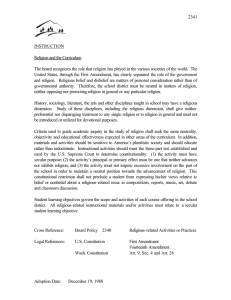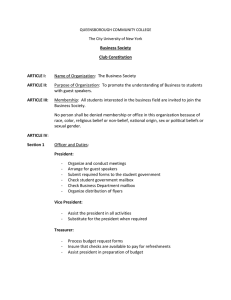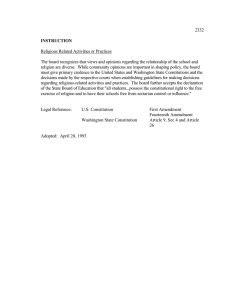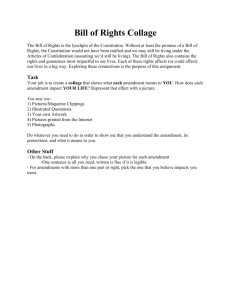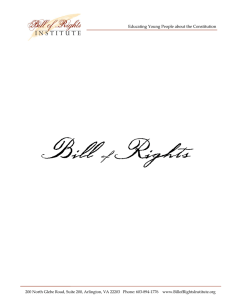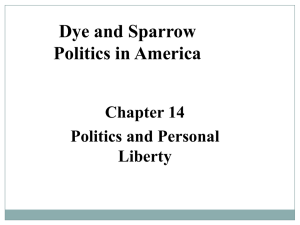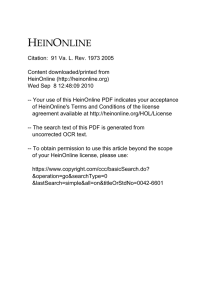2338 Religion and the Curriculum
advertisement
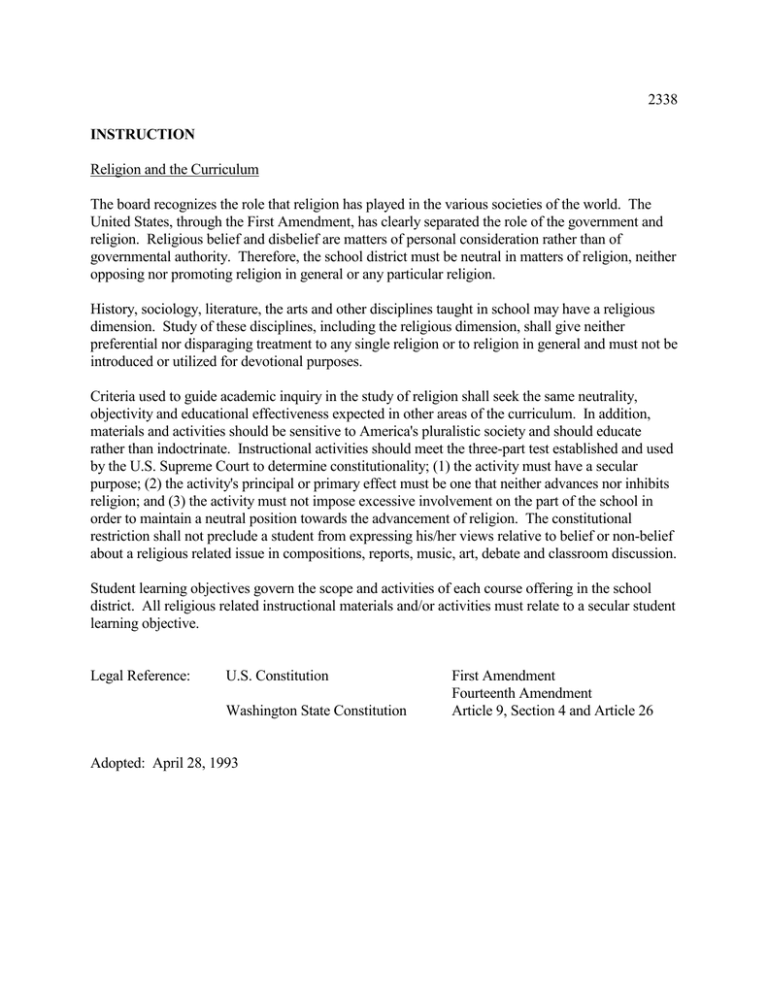
2338 INSTRUCTION Religion and the Curriculum The board recognizes the role that religion has played in the various societies of the world. The United States, through the First Amendment, has clearly separated the role of the government and religion. Religious belief and disbelief are matters of personal consideration rather than of governmental authority. Therefore, the school district must be neutral in matters of religion, neither opposing nor promoting religion in general or any particular religion. History, sociology, literature, the arts and other disciplines taught in school may have a religious dimension. Study of these disciplines, including the religious dimension, shall give neither preferential nor disparaging treatment to any single religion or to religion in general and must not be introduced or utilized for devotional purposes. Criteria used to guide academic inquiry in the study of religion shall seek the same neutrality, objectivity and educational effectiveness expected in other areas of the curriculum. In addition, materials and activities should be sensitive to America's pluralistic society and should educate rather than indoctrinate. Instructional activities should meet the three-part test established and used by the U.S. Supreme Court to determine constitutionality; (1) the activity must have a secular purpose; (2) the activity's principal or primary effect must be one that neither advances nor inhibits religion; and (3) the activity must not impose excessive involvement on the part of the school in order to maintain a neutral position towards the advancement of religion. The constitutional restriction shall not preclude a student from expressing his/her views relative to belief or non-belief about a religious related issue in compositions, reports, music, art, debate and classroom discussion. Student learning objectives govern the scope and activities of each course offering in the school district. All religious related instructional materials and/or activities must relate to a secular student learning objective. Legal Reference: U.S. Constitution Washington State Constitution Adopted: April 28, 1993 First Amendment Fourteenth Amendment Article 9, Section 4 and Article 26
